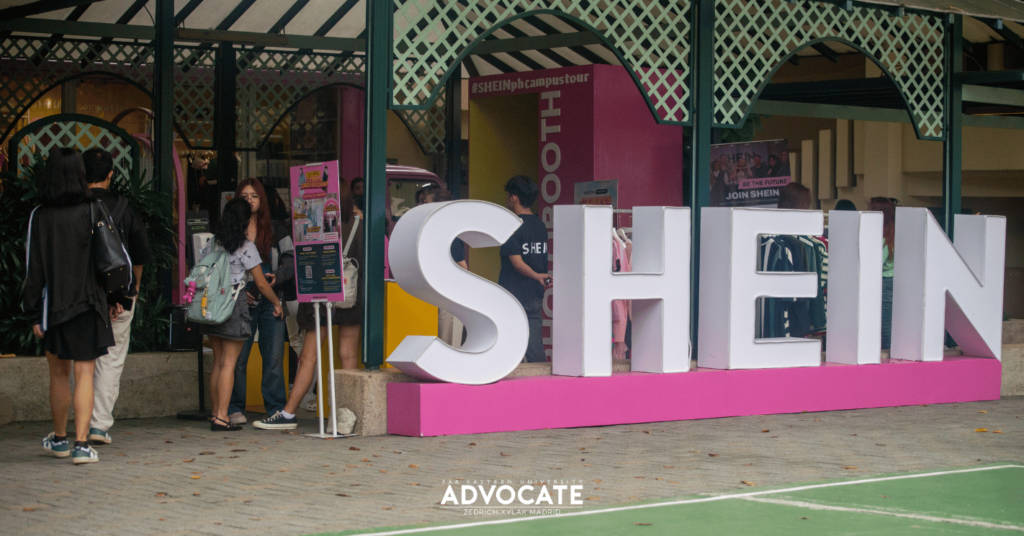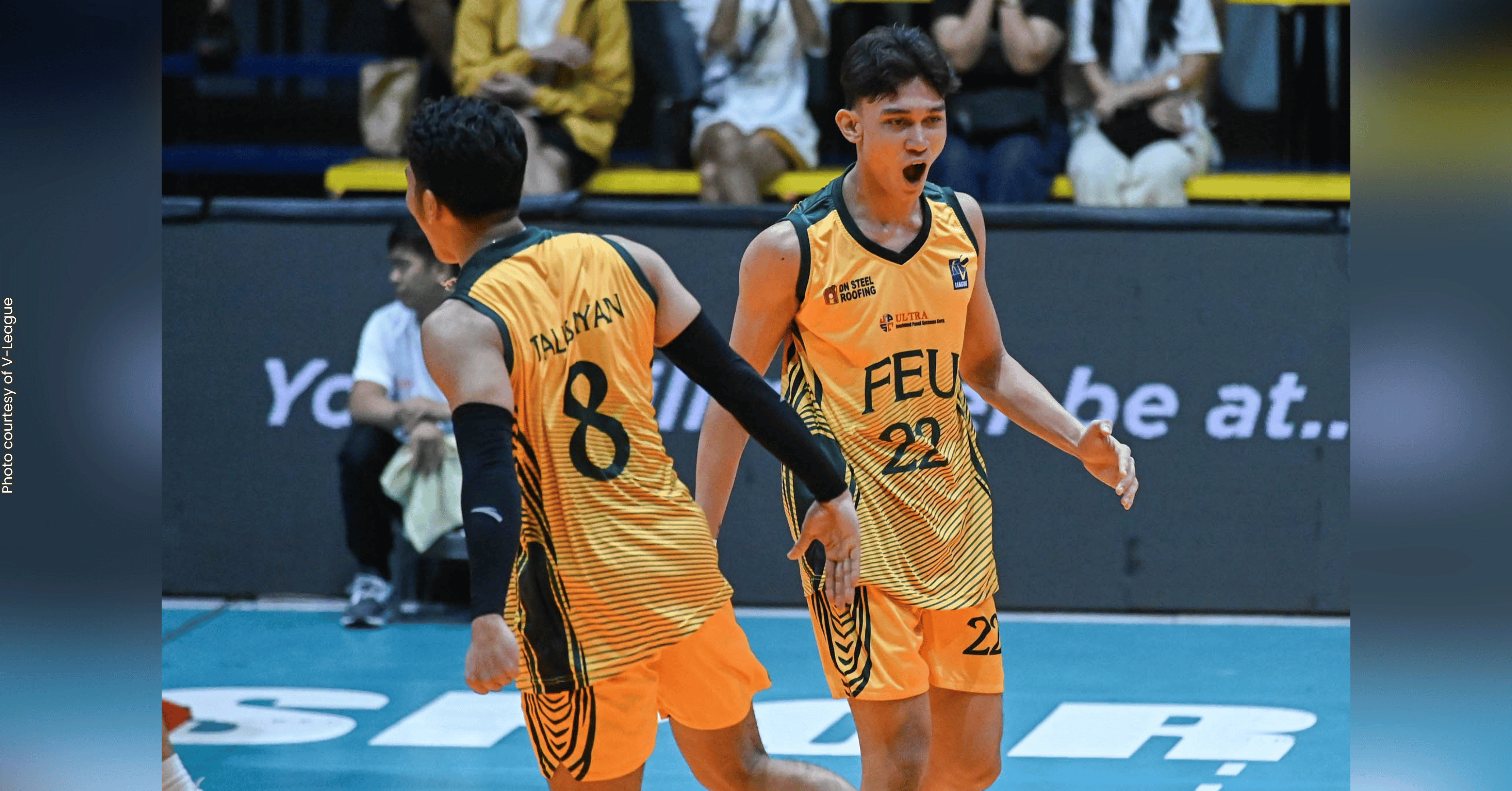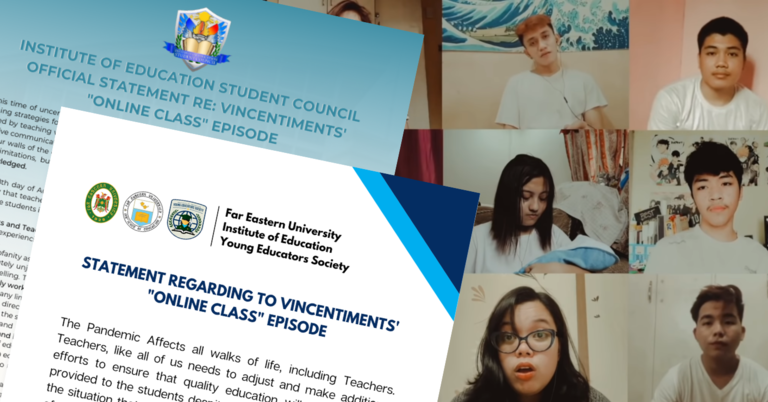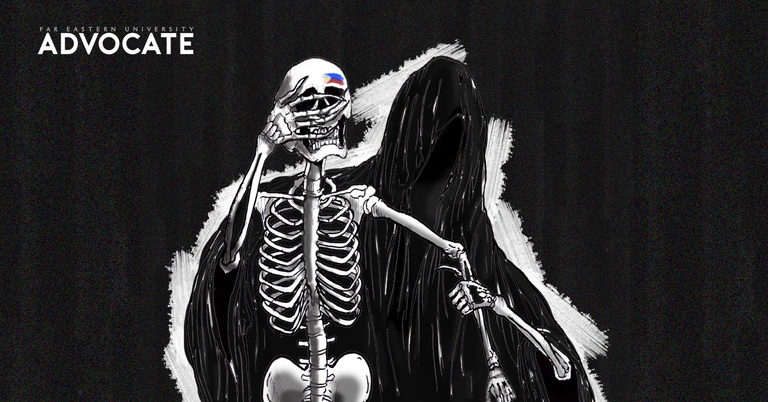
Tamaraws extend losing streak to 3 despite RJ Abarrientos’ 33-point output
- April 02, 2022 10:13
FEU Advocate
September 13, 2024 20:23

Tell-Tale Heart
By Beatrice Diane D. Bartolome, Senior Literary Writer
Far Eastern University (FEU) puts so much emphasis on academic integrity for its students, but where is the emphasis on their own ethical integrity? By partnering with SHEIN—a brand with a well-documented history of unethical labor practices and environmental disregard, the University is sending a contradictory, almost hypocritical message.
FEU, an institution that lives and breathes its core values of fortitude, excellence, and uprightness, carries a responsibility to not only educate but to instill ethical standards and critical thinking onto its students. These principles are ingrained in every Tamaraw from the moment they step onto campus. We are constantly reminded that we must not only excel academically but also uphold ethical standards in everything we do.
On one hand, students are taught to reflect on their choices and principles. On the other hand, the University itself promotes a company that stands for the very practices we are often told to question and push back against—such as exploitative labor practices, environmental harm caused by unsustainable production methods, and the promotion of overconsumption through cheaply made, disposable fashion.
There are a lot of conversations to be had, but the one that sticks out the most is this: why is the University endorsing a brand like SHEIN in the first place?
As a student of FEU, I find this deeply troubling, as it seems the university is prioritizing profit or disregarding what they stand for.
Fashion is cyclical. It changes based on trends and seasons, now more than ever thanks to the influential power of social media and content creators.
Clothing and accessories aren’t cheap, though. Not by an inch. If you want good quality clothes, you need to break the bank. That’s just how it is, considering the labor and materials to sew that pretty dress or to assemble those chic boots. Brands like Muni Studios, Kaayo, Lazy Fare & Lucy in the Sky, Linea Etnika, and Arapilak are all local, handmade, and most importantly: sustainable. Yet, that’s where the problem comes in.
Sustainable fashion in the Philippines still faces challenges in terms of affordability and availability, with many consumers citing high costs as a barrier to making eco-friendly choices. Prices between brands range between P800 to P5,000, and that’s not an easy price to pay for our Tamaraws.
That’s where SHEIN comes in. In their own words, they are “a global fashion and lifestyle online retailer committed to making the beauty of fashion accessible to all.” But, What is the price for accessibility? What is the real price of being able to buy a top for P140? To understand the implications, we need to break down the economics behind it: if we estimate that the production cost of this item ranges between P42 and P84, including the cost of materials, labor, transportation, and everything else that goes into making these clothing pieces.
When there's a big gap between the selling price and the production cost, it usually means that the profit margin is coming from either extremely low labor costs or by cutting corners elsewhere in the production process.
This discrepancy between cost and price prompts a critical examination of the broader implications. How in the world is that ethical or sustainable at all?
SHEIN might be one of the most famous fast-fashion brands, but that status comes with a controversial history. The shadow of child labor, pervasive discussions of their labor practices, unsustainable business, and rampant plagiarism practices follow it everywhere; regardless of how far they try to distance themselves from that image.
For example, 15-percent of SHEIN's products reportedly contain concentrations of hazardous chemicals that breach numerous regulatory limits. The brand drops at least 2,000 to 5,000 new products every day and this rapid production using virgin polyester and oil produces the same amount of CO2 as 180 coal-fired power plants, translating to 6.3 million tons of CO2 annually.
None of this even begins to talk about the dreadful working environment. with most workers being forced into 12-hour to 75-hour shifts, rarely with any time off to rest—which is against Chinese labor laws, by the way. How could you stomach buying a top when it was made by the hands of a person who makes below minimum wage?
This problem extends far beyond just fashion, though. When a university is willing to associate with such a controversial brand, it raises deeper concerns about how seriously they take their commitment to promoting responsible practices.
It feels like the very principles we are expected, as Tamaraws, to embody are being compromised by the very institution that instills them in us. This partnership does not just raise questions about FEU’s integrity—it’s sending a message to the Tamaraw community that our values can be bent when it suits us.
It is disheartening to think that an educational institution, which should stand as a beacon of ethical framework, could so easily dismiss its own values for the sake of pure profit.
Should an institution dedicated to shaping future leaders not be more discerning in its partnerships?
Should it not push students to be more mindful of their consumption habits and support local businesses instead, especially in the context of pressing global issues like climate change and inequality? Quite ironic since inclusivity and sustainability are the major themes for TamHunt 2024.
Fashion is, undeniably, a huge part of a person’s self-identity. In a sea of faces, each individual seeks to distinguish themselves from the other through their personal style, and fashion becomes a powerful tool for that very mission.
However, as fast fashion giants dominate the market with their ever-changing trends and affordable prices, this pursuit of uniqueness comes at a significant cost.
The allure of a full closet in exchange for basically not much often masks the severe environmental and ethical implications behind their production.
Is the blame all on our Tamaraws, though? In between paying for ever increasing tuition, rent, food, and transportation fees—what other choice do college students have?
It makes me question whether FEU truly believes in the values it preaches or if, at the end of the day, financial incentives carry more weight than ethical responsibility. If FEU wants to maintain its credibility as an institution that shapes future leaders and scholars, it must hold itself to the same standards it expects of the Tamaraw community.
In the end, it’s not just about the clothes we wear—it’s about the values we embody. If FEU truly values integrity, it must reflect those values in its actions. Otherwise, it risks teaching its students that principles can be compromised when the price is right—a lesson far more damaging than any fast fashion trend.
(Photo by Zedrich Xylak Madrid/FEU Advocate)









